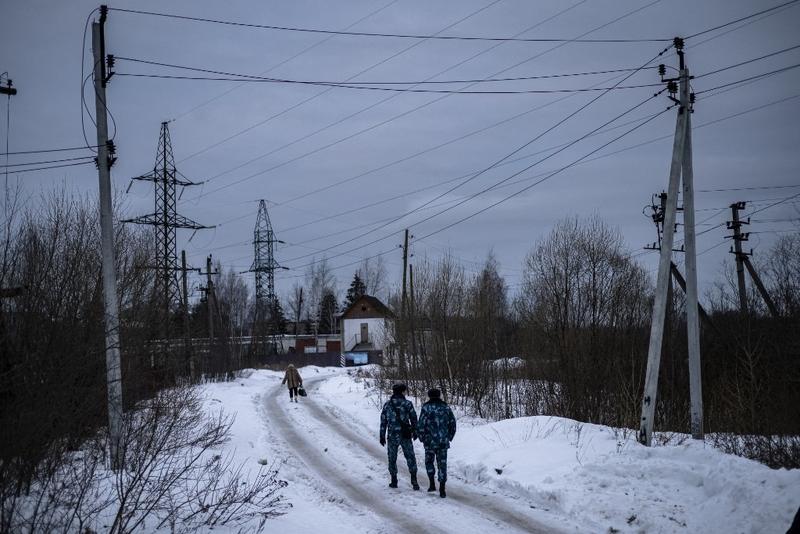 In this file photo taken on March 01, 2021, officers of the Russian Federal Penitentiary Service walk near the gate of the penal colony N2, where Kremlin critic Alexei Navalny has been transferred to serve a two-and-a-half year prison term for violating parole, in the town of Pokrov. (DIMITAR DILKOFF / AFP)
In this file photo taken on March 01, 2021, officers of the Russian Federal Penitentiary Service walk near the gate of the penal colony N2, where Kremlin critic Alexei Navalny has been transferred to serve a two-and-a-half year prison term for violating parole, in the town of Pokrov. (DIMITAR DILKOFF / AFP)
MOSCOW - Jailed opposition leader Alexei Navalny’s health is stable and satisfactory, Russia’s Federal Penitentiary Service said on Thursday, a day after his allies raised the alarm over his condition.
Navalny’s allies said on Wednesday that they were concerned by a deterioration in his health and his lawyers said they had not been allowed to visit him in prison.
The Federal Penitentiary Service said prisons in the Vladimir region, where Alexei Navalny is being held, had carried out medical examinations on inmates on Wednesday
The penitentiary service said prisons in the Vladimir region, where Navalny is being held, had carried out medical examinations on inmates on Wednesday.
ALSO READ: US imposes sanctions on Russia over poisoning of Navalny
It said the checks had been conducted at inmates’ request and that the 44-year-old opposition politician had been examined too.
“His health is deemed stable and satisfactory, according to the results of the examination,” the Interfax news agency cited the penitentiary service as saying.
The statement did not satisfy Navalny allies.
“Now we are really worried,” Navalny’s Anti-Corruption Foundation wrote on Twitter. “Even the Federal Penitentiary Service can’t call Navalny’s condition good.”
ALSO READ: Russians vow to hit back at sanctions
Navalny was jailed last month for two and a half years on charges he called politically motivated. He was arrested as he returned to Russia from Germany in January where he had been recovering from what doctors said was a nerve agent poisoning.
Leonid Volkov, a close Navalny ally, said on Wednesday that Navalny began experiencing serious back pain last week, felt a numbness in his leg and was unable to stand on it. He was given two Ibuprofen pills for the pain, Volkov said.
Navalny’s allies announced plans on Tuesday to stage what they hope will be the biggest street protest in modern Russian history this spring in bid to have him released. The authorities have said such protests are illegal.
READ MORE: Russia expels European envoys over Navalny protests


